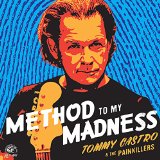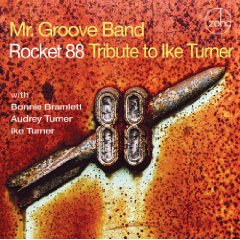
88.1FM
WYCE
-
or visit our secure sign-in page
sign in or sign up...
OR ...with your email address

Community Media Center

2013-10-12
Dana Fuchs is a powerful vocalist often compared to Janis Joplin for her gutsy growl. While the comparison is not unfair it is also incomplete. While Joplin's music was rooted in late 60's/early 70's blues rock, Fuchs also dips into gospel, Livin' on Sunday, soul, So Hard to Move, modern rock that wouldn't be out of place on a Pretender's disc, Daddy's Little Girl, some revved up rock reminiscent of Johnny Cash's Ghostriders, Rodents in the Attic and even some straight up Country, Nothin' On My Mind. That said, Fuch's can flat out rock with the best of them as evidenced by the title cut, Keep On Walkin' and How Did Things Get This Way. In addition to her skills as a vocalist, Fuchs does a fine job with the pen on the 12 cuts collected here. For the most part, the songs rip into clueless lovers, How Did Things Get This Way, warn old news boyfriends to stay away, Keep On Walkin' and So Hard To Move, find her relishing the revenge when a departed mate finds himself all alone instead of in the land of milk and honey, Bliss Avenue and weave cautionary tales about living too fast and free, Daddy's Little Girl and Baby Loves the Life. Handful Too Many doesn't hit as hard musically as some of the other numbers but the harsh judgment of straying lovers is just as sharp: "All the colors in the world could paint you/far away from that same dark corner/I saw the light in your wicked words/truest colors I ever heard". This smack down is made all the heavier by the LaGrange era ZZ Top "how, how, how" kiss off at the end. Great stuff. Smitty

Tommy Castro & the Painkillers
Method to My Madness

Peter Ward
Blues On My Shoulders

Hamish Anderson
Restless

RORY BLOCK
BLUES WALKING LIKE A MAN- A TRIBUTE TO SON HOUSE

MR. GROOVE BAND
ROCKET 88 TRIBUTE TO IKE TURNER

THE IGUANAS
If You Should Ever Fall On Hard Times
The opinions expressed in these reviews are those of the individual volunteers that submitted the article and do not necessarily reflect the views of WYCE or GRCMC; nor its staff, donors, or affiliates.